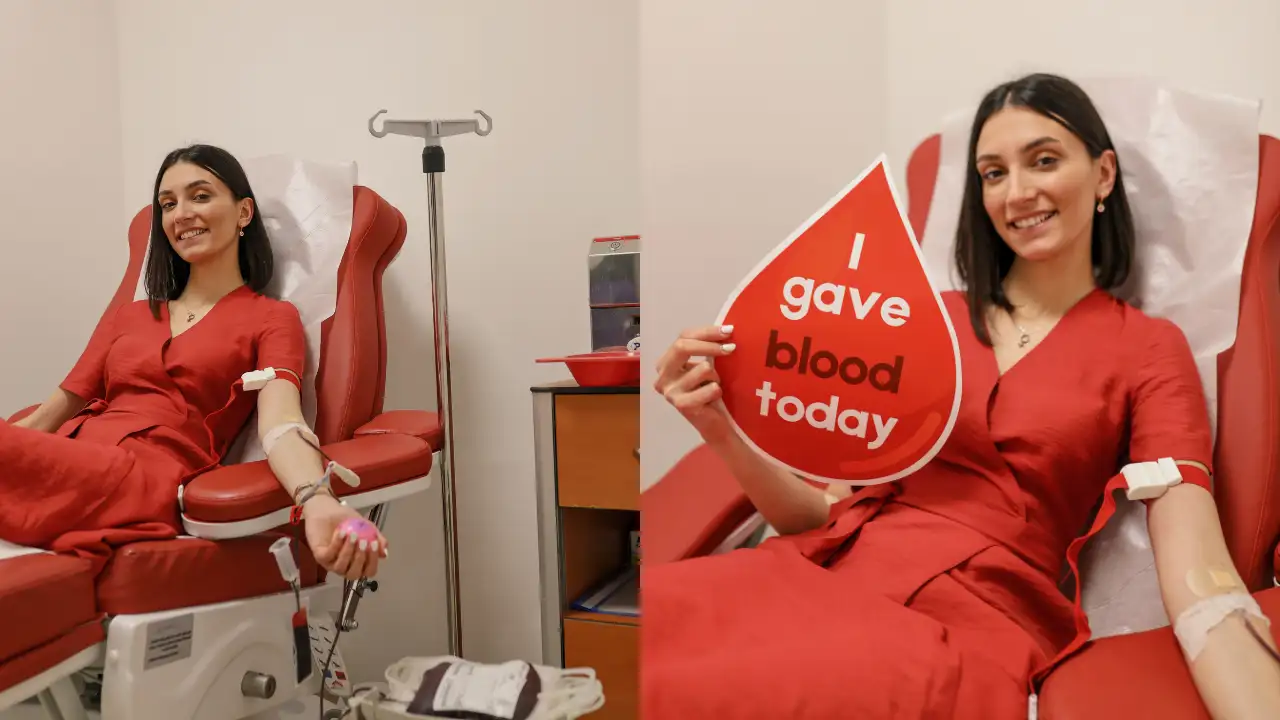It is World Blood Donor Day, and it is time to shine a spotlight on a group of unsung heroes—women donors—whose contributions to the global blood supply are invaluable yet often underappreciated. While women make up nearly a third of all blood donors worldwide, their path to donation comes with a unique set of physiological, nutritional, and emotional nuances that deserve closer attention.
Why Women’s Blood Matters
“Women are also an important segment of the world of blood donors. Not only do they double the donor pool potential by being actively involved, but they also introduce diversity into the blood bank, given that some women may have rare blood types that are vital for specific patient needs,” says Dr. Aruna Lahari N, Consultant Pathologist at Chinmaya Mission Hospital, Bangalore.
However, the journey is not always smooth. Women often face more donation deferrals due to naturally lower haemoglobin levels, smaller blood volume, and the hormonal changes that accompany various life stages like menstruation, pregnancy, and menopause. Dr. Lahari explains, “Though women can give blood safely and regularly, there are some physiological traits such as lower iron levels, lower blood volume, and hormonal changes that must be attended to in order for them to be healthy before, during, and after donating.”
Menstruation, Menopause, and Metabolic Health
Preparation, then, is key. “Haemoglobin screening/testing is crucial, as women are more commonly deferred with lower haemoglobin. “Adequate preparation like taking iron-rich food, staying well-hydrated, and resting adequately can prove very effective,” she adds. Timing also matters: it is generally not recommended for women to donate during or immediately after their periods, especially if their iron levels are borderline. New mothers are advised to wait at least 6 to 12 months postpartum or 6 weeks after ceasing breastfeeding before donating blood.
Dr. Savitha Anil Kumar, Consultant Pathologist and Laboratory Director at Apollo Hospitals, Bangalore, points out the critical role that postmenopausal women can play in maintaining the blood supply. “Female donors are essential to the global blood supply, contributing approximately 33% of all donations annually. While reproductive-age women often face challenges in donating blood due to nutritional demands, pregnancy, and lactation, postmenopausal women can benefit significantly from regular blood donation.”
Health Benefits and Empowerment for Women Donors
One key health benefit lies in iron regulation. “Before menopause, women naturally lose iron through menstruation. After menopause, this iron loss stops, increasing the risk of iron accumulation, which may lead to oxidative stress and elevate the likelihood of chronic conditions,” explains Dr. Kumar. “Regular blood donation helps eliminate excess iron, maintaining healthier and more stable iron levels.”
Dr. Lahari echoes this benefit: “Iron accumulation is of concern since menstruation no longer regulates iron concentration, potentially increasing the risk of diabetes, cardiovascular issues, or even loss of cognitive function. Regular donation helps in the elimination of excess iron, which further enhances metabolic equilibrium, reduces oxidative stress and inflammatory markers, and enhances cardiac strength.”
Blood donation is not just good for the heart; it is good for the whole system. “Frequent donors have shown improved blood viscosity and lipid profiles, potentially reducing the risk of thromboembolism and the rupture of atherosclerotic plaques,” says Dr. Kumar. And because each donation includes a mini-health screening, it can help identify underlying health issues like anaemia or hypertension early, enabling prompt medical intervention.
Beyond the physiological impact, there is an emotional and social aspect, too. “Knowing that one donation can save up to three lives fosters a deep sense of purpose and community involvement,” says Dr. Kumar.
For women, donating blood is more than a selfless act; it is an empowering one. “By supporting women donors with proper medical guidance, nutritional awareness, and recovery protocols, we are not only strengthening our blood supply but also empowering women to take charge of their own health,” says Dr. Lahari. “Enabling women to become lifelong donors is both a public health imperative and a step toward greater health equity.”
Raising awareness around these unique benefits and considerations can pave the way for more women to confidently join the donor community—not just once, but for life.
